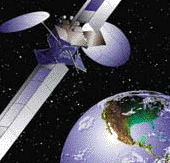 |
Main Page of the
Journal
Main Page of the WSEAS
Jan. 2007,
Feb. 2007,
Mar. 2007,
April 2007,
May 2007, June 2007
, July 2007,
August 2007, Sep. 2007, Oct. 2007, Nov. 2007, Dec. 2007, 2008
WSEAS TRANSACTIONS
on
ENVIRONMENT and DEVELOPMENT
Issue 8, Volume 3, August 2007
Print
ISSN: 1790-5079
E-ISSN: 2224-3496 |
|
|
|
|
Title of the Paper: Applicability of RAMS for A Simulation to
Provide Inputs to an Air Quality Model:
Modeling Evaluation and Sensitivity Test
DOWNLOAD FULL PDF
Authors: Chatchawan Vongmahadlek
and Boonsong Satayopas
Abstract: In this study, the Regional Atmospheric Modeling System (RAMS) is applied to simulate historical wind and temperature fields in the Bang Pakong area of Thailand in order to support a photochemical air quality modeling system in summer and winter time. We use high-resolution datasets of Digital Elevation Model (DEM), global monthly Sea Surface Temperature (SST), and global reanalysis data as a part of the global analysis information for a preparation of geo-terrestrial processes. The studied domain covers the Central and Eastern regions of Thailand. The based model setup includes one-way with the nesting grid of the Bang Pakong area using typical modeling parameters. The configurations of each domain (i.e., time steps and grid resolution) are formulated by grid specifications. The results indicate that RAMS can be applied to the historical meteorology (i.e., wind and temperature fields) over the complex terrain and the coast area. The statistical evaluation is applied in an average basis of the ground surface and found acceptable agreement between available observed and simulated results. Data assimilation by nudging analysis is applied to Thailand's weather information obtained from the Thai Meteorological Department (TMD) to improve modeling simulations. This technique shows the better improvement of modeling performance. Sensitivity tests on some physical parameters and schemes (i.e., convective cumulus and radiation parameters) are conducted to investigate their influence on modeling responses. The modeling performance of physical parameters to the area of study are discussed
Keywords: Meteorological model, Evaluation, Modeling performance, Data assimilation, Sensitivity test
Title of the Paper: Experimental Characterization of Environmental Impacts from Underground Electric Metro in Braking Regime
DOWNLOAD FULL PDF
Authors: Cornelia Aida Bulucea, Constantin Brandusa
Daniel Cismaru, Doru Adrian Nicola
Abstract: The electric traction drive systems on basis of the induction motors fed by the static converters have lead to remarkable performances for the urban electric trains, concerning both the train dynamics and the environment issues. Moreover, the power converters on the basis of high techniques in the control electronics and the efficient anti-skidding systems have ensured the optimum traction characteristics and the minimum of the energy consumption. But, in case of the underground electric metro operation it is necessary to estimate the environmental impacts of the mechanical brake unrecovered energy, particularly the amount of the material developed (the brake blocks wear) in the mechanical brake process. Because this mechanical braking energy can be considered equal (as value) to the electrical energy (the active component) of the starting process, in the paper had been simulated a transient starting regime, using MATLAB software and SIMULINK-Sim Power Systems Extensions. Consequently, it had been evaluated the active braking material wear (the brake shoes wear) in the underground metro mechanical braking process, which has important environmental impacts.
Keywords: Electric metro, drive system, environmental impacts, mechanical brake
|
|
|


